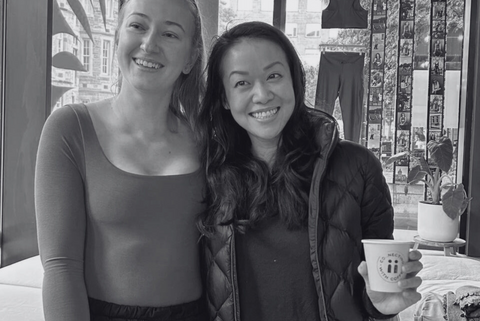Guest article by Florrie Evans
When was the last time you sat down for a coffee and had a truly great conversation? I’m going to bet that it was just the other day. From having a catch-up with a friend, a first meeting with a potential business partner, a first date, or a debrief after a big night out, coffee has always been more than just a drink—it’s a catalyst for connection. Common is proud to put connection at the forefront of our company. When I worked in a coffee shop, I loved observing people. Whether it was a first meeting, a first date, a vulnerable conversation had between friends. Coffee has always sparked conversation, It turns out, this social connection goes back centuries, starting in the Ottoman Empire.
There are many different stories and tales about where coffee was first discovered, the most famous being in Ethiopia in the 9th century. It was discovered by a goat herder whose goats ate the coffee beans and were then so visibly affected by the energising quality, that it was introduced to the Arab Sufi monks. They would use it to stay awake for midnight prayer, this would allow them to reach “divine consciousness”. Coffee then moved over to the Ottoman Empire where it was nearly banned many times because it was seen more as a drug than a drink. The majority of the Muslim population didn’t drink alcohol, so coffee was a way to socialise. This was how the coffee house was born, a place where people could meet, chat, and debate. As coffee made its way westward from the Ottoman Empire, it found a new home in Europe.
The first coffeehouse in Europe opened in Vienna in 1529, brought over by Turkish invaders. This is where milk and sugar began to be added for the new coffee drinkers, although it was a long way off from the flat whites of today. By the 17th century, European travellers had encountered coffee during their trade and diplomacy efforts in the Middle East and were captivated by the drink's unique flavour and stimulating properties. As coffee spread through Europe, it became fashionable in cities like Venice, London, and Paris. The introduction of coffee to Europe was such a success that it soon became a part of daily life. The popularity of coffeehouses started to shape not only social habits but also intellectual and political movements.
In England, the coffeehouse became especially influential. Often called ‘penny universities’, these spaces offered affordable access to knowledge and conversation; it became a melting pot of ideas, where poets, philosophers and politicians mingled freely, sharing ideas that would sometimes go on to shape history. They would be places where tables were filled with pamphlets and papers, and it was the very start of the newspaper industry and the spreading of news.
There’s something so special about looking back and imagining all of your favourite writers and thinkers meeting and speaking about their works. The equal nature of coffeehouses was the thing drawing people in: they were some of the few places where individuals of different social classes could come together on relatively equal footing. Whether discussing politics, literature, or finance. The coffee house provided a rare opportunity for open discourse and connection amongst different classes.
As coffee's popularity surged in Europe, it further fueled oppressive systems of colonialism. It's important to acknowledge this legacy, while also recognizing how much progress the coffee industry has made. Over time, commodities like coffee, once sources of conflict, have become integral to global trade. Specialty coffee and small businesses, like Common, play a crucial role in promoting fairer prices and trade practices. Though the industry isn't without its flaws, it continues to make meaningful strides toward a more equitable system for all.
Despite its complex history, coffee continues to be a powerful symbol of connection and community. From my own experience working in a café, I’ve seen first-hand how coffee brings people together. Whether it was early-morning regulars or groups of friends meeting to share updates, the café became more than just a place to grab a drink, it was a community. I watched writing groups huddle over laptops, book clubs discuss their latest read, runners pop in after their Sunday 5k and students collaborate on projects. Buying a coffee is about the conversations. Today, cafés remain a modern-day version of the historical coffeehouse, where ideas are exchanged, and friendships are nurtured, as well as made. Next time you’re at a café, take a moment to look around—the conversations, the connections, the ideas brewing over a cup of coffee. It’s a tradition we’re proud to foster at Common Coffee, it’s incredibly important that our coffee allows connection between people from all different walks of life.
Stay tuned as we explore more of the topics surrounding coffee as a tool for bringing people together...


